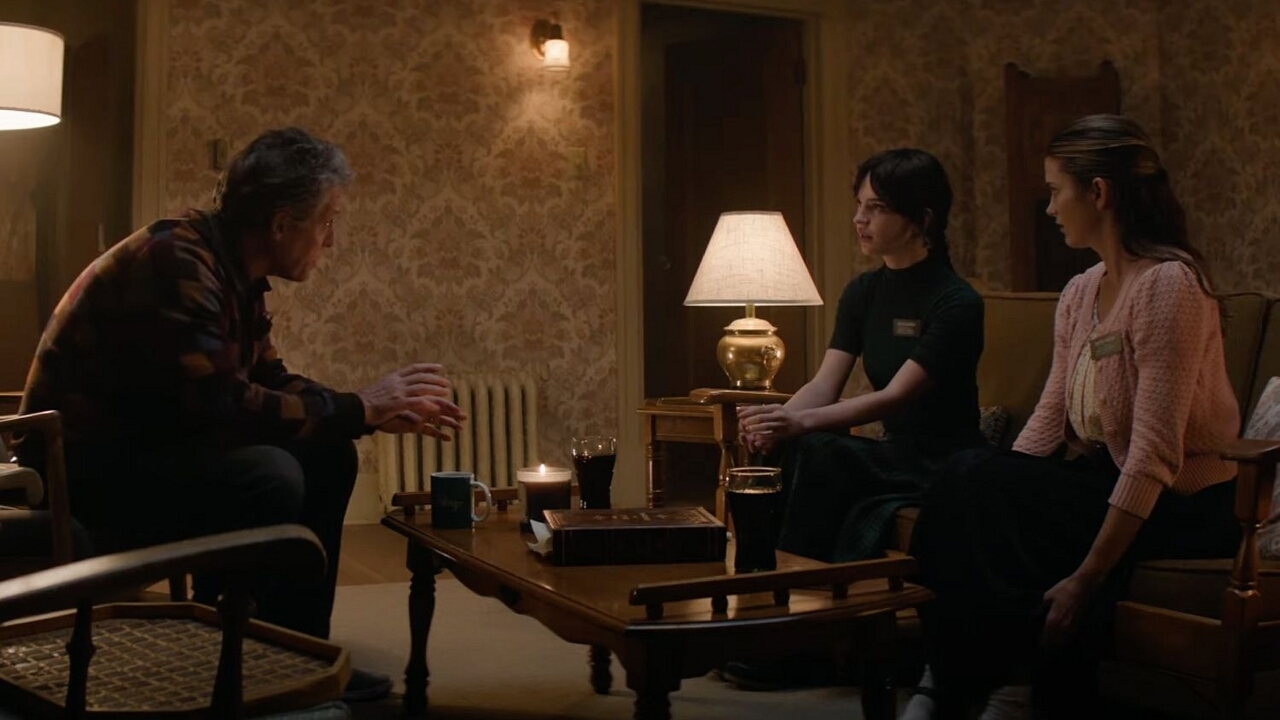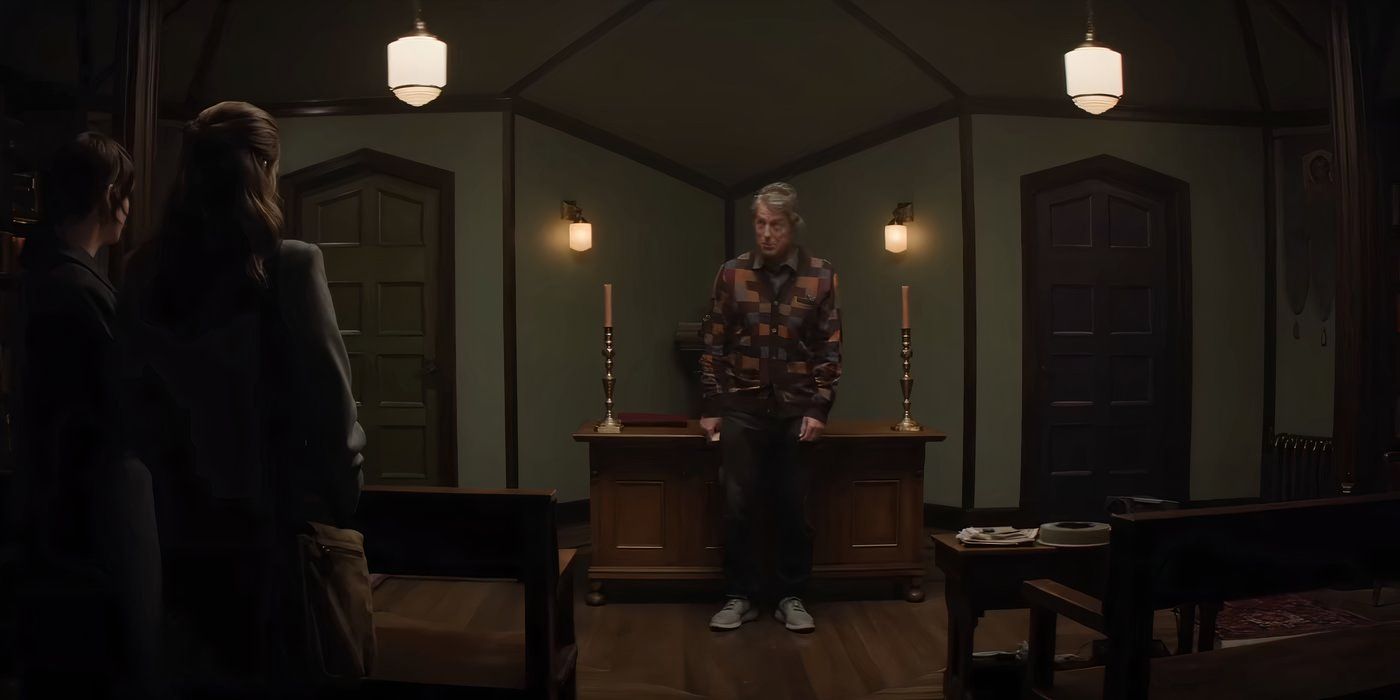When I sat down to watch Heretic, I thought I was in for a straightforward creepy-kidnap thriller. And yes, there’s a captivity element at its core, but the film takes a turn into something far more introspective and psychological than I expected. This isn’t necessarily a bad thing, but it does catch you off guard—it isn’t the typical cat-and-mouse horror. And that approach actually manages to bring out some deeply unsettling elements, just in a different way.
 |
| Image by IMDb |
Words as Weapons of Fear
One of
Heretic's most unique aspects is its slow, simmering creep factor that doesn’t rely on dark corners or shadowy lurking. The captor isn’t hiding or cloaked in mystery; in fact, he’s front and center. It’s his words, his unnervingly calm demeanor, that inject a skin-crawling tension. It’s refreshing—and disturbing—to see a character who doesn’t need to physically intimidate. His words do all the damage.
 |
| Image by IMDb |
Hugh Grant's Haunting Performance
The standout here, without question, is Hugh Grant. He’s been taking on roles lately that stretch beyond what you’d expect from his career in rom-coms, and this might be one of his best. His performance is magnetic and so deeply unsettling that I almost forgot I was watching a movie; he was that convincing. At times, it felt like I was watching a twisted true crime drama unfold in real-time. Chloe East and Sophie Thatcher bring excellent performances as well, nailing the tricky balance of portraying naivety and resilience. It’s not an easy feat to keep an audience invested in characters who feel somewhat helpless, yet they pull it off well.
 |
| Image by Cinemasight |
Predictable Yet Thought-Provoking Plot
Once you get a grasp on where the story’s headed, it does start to feel a bit predictable. There’s a small twist thrown in, but it doesn’t alter the direction much. Still, I was intrigued by the film’s commentary on religion. Personally, I don’t consider myself religious, and I appreciate a film that takes an honest look at belief systems without an agenda.
Heretic dives into various religions with a surprising level of care and even-handedness. It’s presented in such a way that, even if you don’t have a background in religious study, you’ll be able to follow and appreciate what it’s trying to say. This added layer is interesting but only adds so much weight in the end. Don't ask me how accurate it is, because I have no idea. It seemed logical is all I can say.
 |
| Image by Collider |
Final Thoughts
Score: 6 out of 10. Hugh Grant’s performance holds this movie together, and the script has some very interesting ideas, especially in its take on faith and manipulation. But after the initial intrigue, the characters don’t develop much, and the plot starts to feel one-dimensional, despite the attempted twists. It’s creepy enough to warrant a watch, but this might be one you wait for at home rather than the theater. A solid effort with some standout moments but falls short of being unforgettable.
Pros:
- Uniquely unsettling: The captor’s upfront, conversational approach to terror is refreshingly creepy, relying on his words rather than typical horror tactics.
- Hugh Grant’s standout performance: Grant's transformation here is incredible. He brings a chilling authenticity, grounding the entire film with his unsettling charisma.
- Strong supporting performances: Chloe East and Sophie Thatcher nail their roles, making their characters feel believable and relatable amidst the horror.
- Interesting religious themes: The film’s exploration of religious comparison is thought-provoking, especially for non-religious viewers, offering a surprisingly balanced perspective.
Cons:
- Predictable story arc: Once you understand the plot, it’s not hard to guess where things are headed, limiting the suspense in the final act.
- Minimal character development: Despite strong performances, the characters (except perhaps Chloe’s) don’t experience much depth or growth.
- Ending lacks impact: Although there’s a twist, it’s subtle and doesn’t add significant weight to the story’s resolution.
- May not justify a theater visit: The film's appeal might not be enough to warrant the big screen experience; it’s one that could work just as well for a home viewing.




Comments
Post a Comment